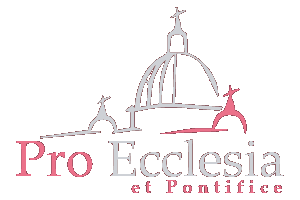

F O R C H U R C H A N D P O P E

THE ONLINE MAGAZINE OF PRO ECCLESIA ET PONTIFICE

Top ARTICLES
ROMAN CATHOLIC NEWS, COMMENT & OPINION
THE FLOCK - LATEST ISSUE
SELECTED ARTICLE
AUTUMN 2016 ISSUE

DR JOSEPH SHAW
I recently took my two oldest children, aged ten and eight, to see a Shakespeare play in Stratford-on-Avon. We were greeted with incredulity wherever we went. One of the theatre employees remarked that his own children didn’t have the attention span to watch a whole episode of “Neighbours”. That struck me as a revealing remark.
The world created by television is an adult world, not because it is profound, but because it is shallow. There is more wisdom in a Victorian fairy story than in twenty episodes of a soap opera. There is a more sophisticated vocabulary, a wider range of styles, and even an appreciation of more different cultures. In reading “The Blue Fairy Book” or “Treasure Island” to my children, I was consulting dictionaries, maps, and Wikipedia to keep up. But children are content to understand things at their own level, and to fit what they don’t know in with what they do.
Indeed this is true of everyone’s appreciation of what is genuinely profound in literature or art. We don’t understand it all; we don’t suck it dry; we take from a parable of Jesus, or a great painting, something, not everything; perhaps something we need at that moment. We needn’t be afraid of children having the same experience. Simple art and simple stories need not lack depth, but what is presented on the TV nearly always does. TV producers need to feed the short attention-spans they have created, and they are prisoners of a conception of human life which lacks a spiritual dimension, and sometimes even an emotional one. Which came first, a medium which creates passivity, or a world view which assigns value only to pleasurable sensations? It would seem they have grown up together.
I’m unable to do a ‘before and after’ study of my children with TV, because we haven’t had broadcast TV since before the oldest was able to watch it. My children have watched DVDs: their favourite is a 30-minute animated version of Mozart’s Magic Flute made by Welsh TV, followed by The Taming of the Shrew in the same series. But while there are advantages to them knowing what moving pictures look like (they aren’t instantly mesmerised when they see them in a friend’s house), it is true to say that the telly doesn’t play a significant part in their lives.
What do they do all day? Chesterton remarked that it is perfectly possible to turn the clock back; it is just a matter of effort. In their free time my home-schooled children do the things children did fifty or a hundred years ago. They play; once they learn to read, they read. They play card games. They’ve just learnt to play draughts, and that has become quite a craze. Last summer they discovered croquet; it was set up on the lawn and on fine days they’d be playing before breakfast. They aren’t especially precocious: they don’t actually understand Shakespeare plays without it being explained, and I can still beat them at chess. But they are having a childhood.
Dr Joseph Shaw is a Tutorial Fellow in Philosophy at St Benet’s Hall, Oxford, and the current chairman of the Latin Mass Society. Dr Shaw also runs St Catherine’s Trust which promotes Catholic education in accordance with the traditional teachings of the Church. He is a regular blogger on Traditional Catholic Issues.
AVAILABLE NOW
S E L E C T E D A R T I C L E S

AUTUMN
2016












